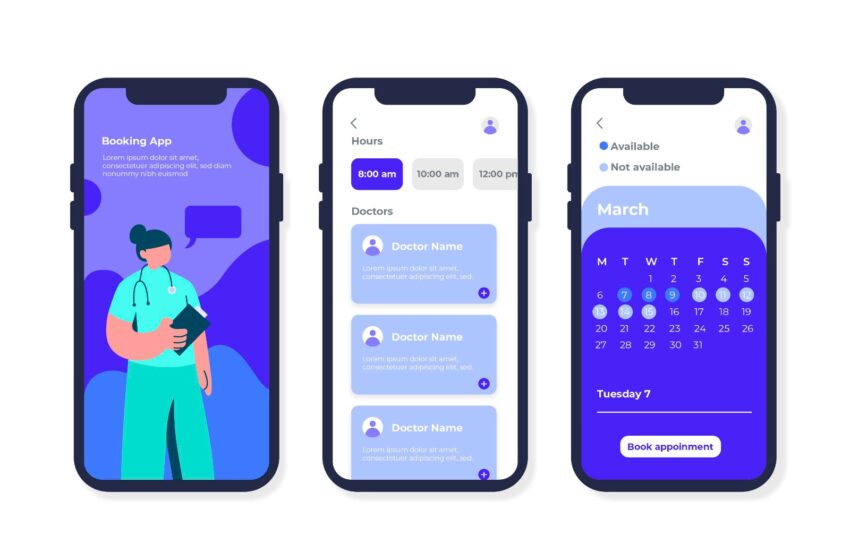The Rise of Mobile Health Apps and Their Impact on Public Health

The digital revolution has profoundly impacted the healthcare sector, with mobile health (mHealth) apps playing a pivotal role in this transformation. These applications, designed to run on smartphones and other mobile devices, are revolutionizing the way individuals manage their health and wellness, offering unprecedented access to health information, services, and support. This article explores the rise of mobile health apps and their significant impact on public health, highlighting the ways in which they are empowering individuals, enhancing healthcare delivery, and promoting a healthier society.
The Surge in Mobile Health App Adoption
The last decade has seen a meteoric rise in the adoption of mobile health apps, driven by advancements in smartphone technology, the proliferation of wearable devices, and increasing internet accessibility. Today, thousands of mHealth apps are available, catering to a wide array of health and wellness needs, including fitness tracking, medication reminders, mental health support, and chronic disease management. This surge in adoption is also fueled by a growing awareness among consumers of the importance of proactive health management and the convenience of accessing health services digitally.
Empowering Individuals with Health Information and Tools
One of the most significant impacts of mobile health apps is their ability to empower individuals with the tools and information needed to take charge of their health. Apps that track physical activity, diet, and sleep patterns provide valuable insights into health behaviors, encouraging positive lifestyle changes. Furthermore, apps offering personalized health tips, educational content, and symptom checkers enhance health literacy, enabling users to make informed decisions about their health and seek timely medical advice.
Enhancing Healthcare Delivery and Accessibility
Mobile health apps are also transforming healthcare delivery by improving accessibility and efficiency. Telemedicine apps, for example, facilitate remote consultations with healthcare professionals, reducing the need for in-person visits and making healthcare more accessible to those in remote or underserved areas. Additionally, apps that allow for remote monitoring of chronic conditions enable healthcare providers to track patients’ health in real-time, leading to timely interventions and better management of diseases.
Supporting Mental Health and Well-being
The impact of mobile health apps extends to mental health and well-being, with numerous apps dedicated to stress management, mindfulness, and psychological support. These apps provide resources such as guided meditations, mood tracking, and cognitive behavioral therapy exercises, offering support to individuals who may not have access to traditional mental health services. By promoting mental wellness and providing tools for managing mental health conditions, mHealth apps play a crucial role in addressing the global mental health crisis.
Challenges and Considerations
Despite the numerous benefits, the rise of mobile health apps also presents challenges, including concerns over data privacy and security, the digital divide, and the need for regulatory oversight to ensure the accuracy and reliability of health information provided. Ensuring that mHealth apps are developed and used in a way that respects user privacy, provides equitable access, and maintains high standards of quality is essential for maximizing their public health impact.
The Future of Mobile Health Apps
Looking forward, the potential of mobile health apps to further impact public health is immense. Advances in technology, such as artificial intelligence and machine learning, are set to enhance the functionality and personalization of mHealth apps. The integration of mHealth apps with electronic health records and other healthcare systems promises a more coordinated and comprehensive approach to healthcare management. As these technologies continue to evolve, the role of mobile health apps in promoting health and wellness, preventing disease, and improving healthcare outcomes will only grow.
Conclusion
The rise of mobile health apps represents a significant shift in the way individuals engage with their health and navigate the healthcare system. By providing convenient access to health information, services, and support, mHealth apps have the potential to empower individuals, enhance healthcare delivery, and promote public health. As we embrace this digital health revolution, it is crucial to address the challenges and ensure that the benefits of mobile health apps are realized by all segments of society, leading to a healthier, more informed, and connected world.
(Nominate Now: Join us to spotlight your achievements! Be part of the elite in the business and finance community. Exciting opportunities await!)







